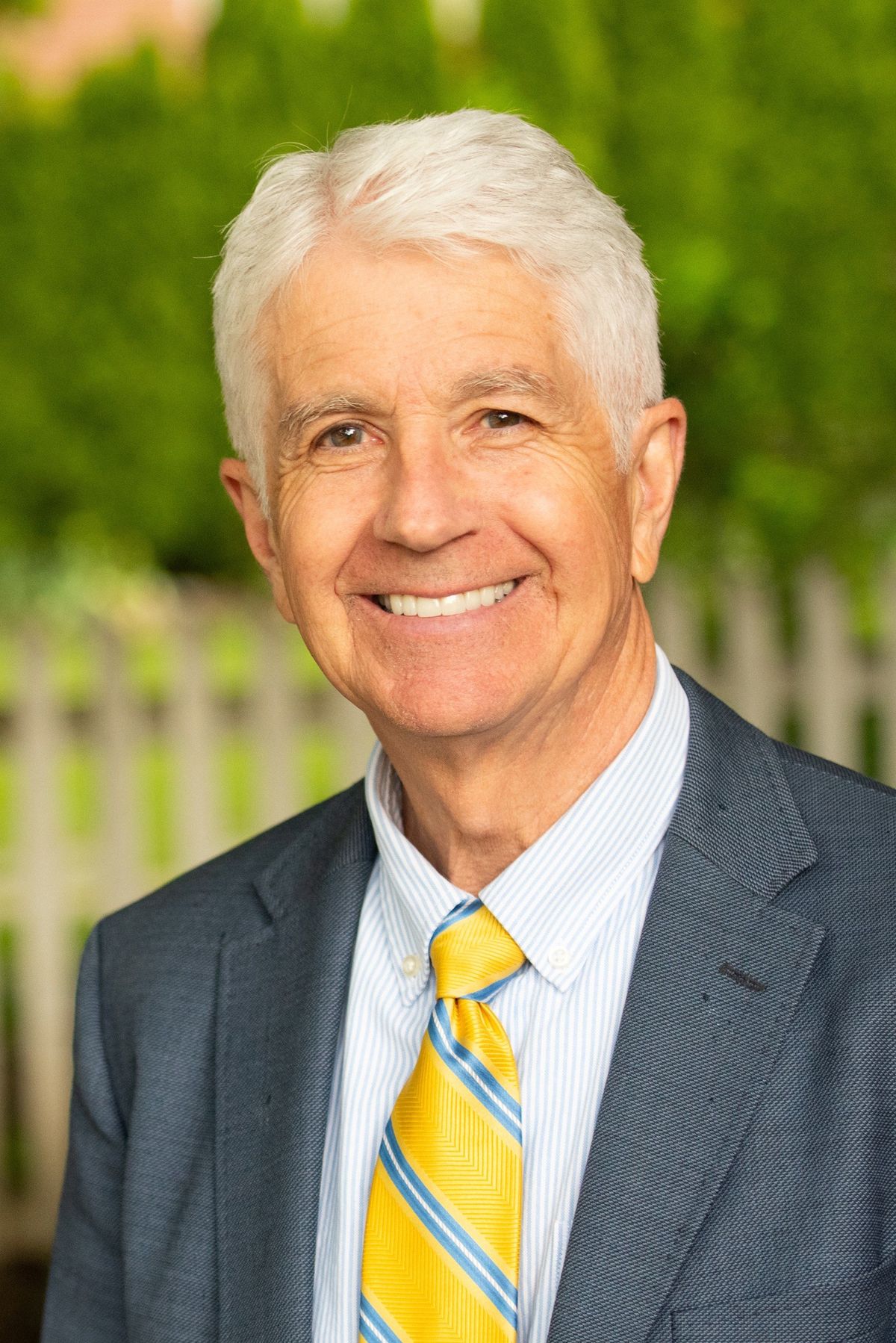Superior Court judges back incumbent Fennessy in general election, while challenger Van Winkle says he’s the choice for change
Attorney Andrew Van Winkle, left, is challenging the re-election bid of Spokane County Superior Court Judge Timothy Fennessy in the November election.
Judge Tim Fennessy says his experience is needed in Spokane County Superior Court while his challenger Andrew Van Winkle argues he would bring change to modernize the court and have a better demeanor on the bench.
After eight years as a judge and more than three decades as a civil trial attorney, Fennessy said his experience makes him the best person for the job. He was elected by his fellow judicial officers to be the presiding judge last year and said he has enjoyed leading in a new way.
With many of the Superior Court judges appointed in the past five years, Fennessy said he hopes his experience will be helpful.
“There are a lot of things that I can see now that I couldn’t see,” Fennessy said of his time on the bench.
Van Winkle, who is a senior staff attorney at the Washington State Court of Appeals Division III, said he hopes to expand the mental health court to help destigmatize mental illness.
“When I see family law and I see civil law, the lawyers and the parties there, they still weaponize mental illness in the way that the criminal world treated it 100 years ago,” Van Winkle said. “The lessons that we’ve learned on the criminal end about working with people who are going through the worst time in their life haven’t translated over to the civil.”
Being raised by a parent with schizophrenia, Van Winkle said he has a unique understanding and empathy for families impacted by mental illness.
Van Winkle said he would push for making it easier to access the courts.
He was critical of an update to the local court rules that goes into effect Sunday requiring physical copies of motions to judges, rather than allowing electronic copies.
“We’re taking the court back to the 1800s when we need to be in the 2000s,” Van Winkle said.
He argued that physical copies are more costly for people who either have to take time off work to file them with a judge in advance of a hearing or pay their attorney to do so.
“We’re making it harder for people to access the court and more expensive for people to access the court,” he said. “And I hear so many people, they’re frustrated with these things.”
Fennessy said to his knowledge they have always relied on physical copies of motions because within the court’s current technology it’s difficult to tab or annotate electronic copies.
Van Winkle’s frustration with a lack of access to courts extends to most areas of the criminal justice system. He would like attorneys to be required to serve documents electronically, give more wiggle room for hearings to be delayed via a written request over making people come to court for something that could have been an email, and wants to use SharePoint, a software program used in King County to allow electronic filing of exhibits.
These modernization efforts, Van Winkle acknowledges, require collaboration with other judges, the clerk’s office, and in some cases a request for funds from the county commissioners, but adding another judge to the bench with these values will help with the momentum for change, he said.
“I think that we need to be building a court that’s resilient for decades to come,” Van Winkle said.
Fennessy said he wants more technology in court but that adding new technologies means updating what they have, which is expensive.
He noted courtrooms were recently equipped to hold hearings via Zoom with multiple cameras and televisions for the public’s viewing.
“I am very supportive of it, and I think all the bench is,” Fennessy said. “It is budgetary. It’s realistic, it’s working with government.”
Van Winkle has been critical of Fennessy’s demeanor on the bench after hearing complaints from the legal community. He pointed to Fennessy’s rate of case disqualification as evidence that attorneys don’t like having their cases heard by him.
Since 2019, attorneys have filed motions to prevent Fennessy from hearing their cases, called disqualification, more than 450 times, according to data obtained by Van Winkle from the Superior Court Administrator’s Office.
Other judges have far lower numbers, with Judge Toney Hazel being disqualified 142 times and Judge Shelly Szambelan being disqualified 135 times in the same period.
“I think it’s pretty telling,” Van Winkle said. “That should be a red flag.”
The Special Assault Unit of the Spokane County Prosecutor’s Office has filed disqualifications on most, if not all, of their cases in front of Fennessy for years.
The prosecutor’s office did not respond to requests for comment on the issue. Both elected Prosecutor Larry Haskell and his chief criminal deputy Preston McCollam are endorsing Van Winkle.
Fennessy said he doesn’t track rates of disqualification and the issue hasn’t been raised by his colleagues.
“None of my bench mates has come to me and said, ‘You need to do things differently,’ ” he said.
“Disqualification is the right of a lawyer,” he added.
Endorsements
Fennessy was the top finisher in the four-candidate August primary for the position. Van Winkle finished second.
After a split endorsements in the primary, Fennessy’s bench mates have largely endorsed him in the general election.
Hazel said he encouraged Fennessy to run again because his eight years of experience as a judge are valuable to the bench.
Court Commissioner Jerry Scharosh, who garnered nearly 19% of the vote in the primary, has not made a public endorsement. Scharosh did not respond to request for comment.
The female Superior Court judges chose to endorse Scharosh in the primary, which Fennessy said he felt was due to his announcement that he would not seek re-election then changing his mind once Scharosh was in the race.
Their endorsements now, Fennessy said, are meaningful, noting he felt the focus on a gender split left an inaccurate impression.
“I am very honored to have their support and I feel … oddly vindicated,” Fennessy said.
Van Winkle was endorsed by the fourth candidate in the primary, F. Dayle Andersen, who was also critical of Fennessy’s demeanor on the bench.
He has touted his endorsement by the Spokane County Republican Party, even attending their primary election party, along with his endorsement from Senator Mike Padden, Haskell and the Police Guild.
Van Winkle argues that his touting of those endorsements doesn’t make him partisan; it’s just who supported him early on. Van Winkle said he sought the Spokane County Democratic Party endorsement but never heard back. Party chair Naida Spencer did not respond to request for comment.
“They’re hearing my message, and it’s a message that’s not partisan. It’s not a left or a right thing,” Van Winkle said. “And I want to make the court a better place for people who need to access it. I think it needs to be more customer-service oriented.”
He said his attendance at the primary election night party was a great chance to speak with precinct committee officers, who consistently turn out in every election. He added that he has reached out to PCOs from both parties.
Van Winkle noted he has endorsements from prominent Democrats such as Senate Majority Leader Andy Billig and retired state Sen. Chris Marr.
Billig, who endorsed Scharosch in the primary, said he met with Van Winkle on the recommendation of Marr and was impressed.
“I think Andrew is smart and hardworking and dedicated to helping advance justice in our community,” Billig said.
Billig said he appreciated Van Winkle’s approach to how mental health issues can bring people into the criminal justice system and should be treated as the root cause of some issues.
Billig did question Van Winkle about his largely Republican endorsements but was satisfied with his response that Van Winkle has approached people from both parties for their endorsement.
“He certainly didn’t sound like a conservative Republican to me,” Billig said of his impression of Van Winkle.
Fennessy is endorsed by the Spokane County Democrats but has not emphasized the support over other endorsements.
“I feel like it’s emphasizing politics in a nonpartisan race and I believe that we ought not be suggesting that we could be beholding to one particular belief pattern,” Fennessy said.


